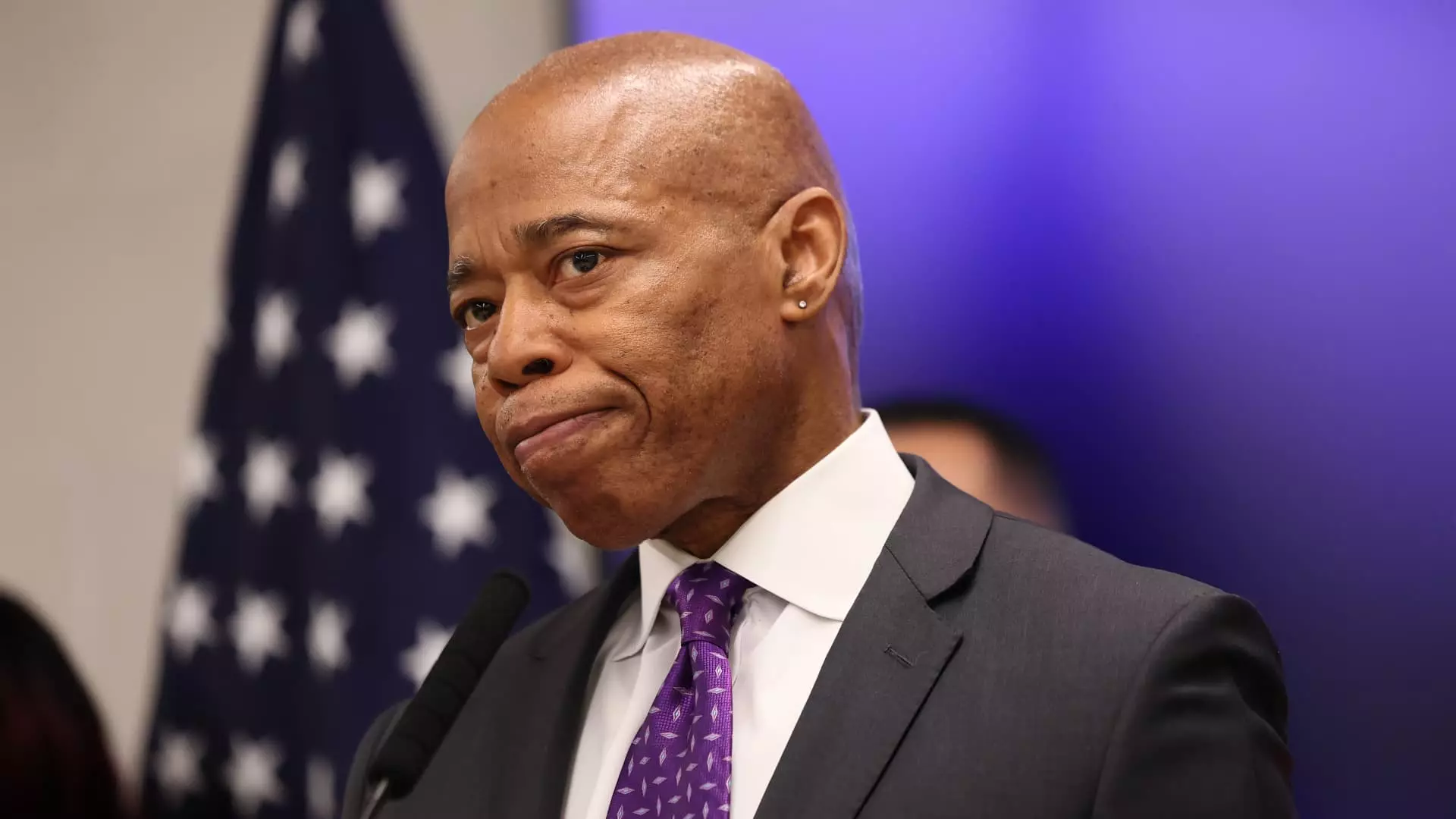In a striking turn of events, attorneys representing New York City Mayor Eric Adams have formally requested the dismissal of the corruption case currently looming over him in federal court. Their argument hinges on alleged unethical conduct by federal prosecutors, igniting a fierce debate about prosecutorial integrity and the boundaries of legal scrutiny. This case is not just about Adams; it encapsulates broader themes surrounding political accountability and the legal system’s role in influencing political figures.
The foundation of Adams’ lawyers’ plea rests on a leaked letter written by former acting Manhattan U.S. Attorney Danielle Sassoon. Within its contents lies an assertion of Adams’ guilt, coupled with indications that the Department of Justice (DOJ) intended to pursue new charges against him. Most troubling for Adams’ team, however, is Sassoon’s implication of a quid pro quo arrangement between the mayor and the DOJ—a claim they staunchly deny. Such allegations expose the fragility of the judicial process and the profound impact that leaks can have on the reputations of public figures.
In their filing to dismiss the case, Adams’ legal representatives—Alex Spiro and William Burck—contend that Sassoon’s actions exemplify a desperate measure taken by a prosecution team unwilling to let go of a case they deem devoid of merit. The lawyers went as far as to describe the correspondence as “last acts of desperation,” suggesting that not only was the case flimsy from the outset, but that the tactics employed by prosecutors have bordered on unethical.
Sassoon’s resignation alongside six other federal prosecutors paints a stark picture of internal dissent within the DOJ regarding the handling of the Adams case. This mass exodus raises critical questions about the ethical obligations of prosecutors and the degree to which personal beliefs might cloud professional judgment. In their request for dismissal, Adams’ lawyers pointed out that the leaked letter had not only contained inflammatory remarks but that it also perpetuated a narrative unfavorable to their client, undermining his reputation and the presumption of innocence.
The Broader Implications of Prosecutorial Discretion
At the heart of Adams’ plea is a demand for a dismissal that would permanently foreclose the possibility of the case being reinstated, a legal maneuver referred to as dismissal “with prejudice.” The implications of this request are profound; if granted, it could serve as a precedent that challenges the prosecutorial practices and discretion regarding politically sensitive cases.
Judge Dale Ho’s decision remains awaited, as he was tasked with determining whether the case merits dismissal and, if so, under what terms. The appointment of an independent attorney to sift through the complexities of the case only underscores its significance. This scrutiny reflects a recognition of the potential implications not only for Adams but also for the public’s confidence in legal institutions tasked with upholding justice.
Adams’ team has pointed to the DOJ’s actions as indicative of a troubling trend within the judiciary system—where legal action becomes entangled with personal and political vendettas. The notion that political figures might be targeted through prosecutorial means poses a risk to the very bedrock of democracy, which relies on the separation of powers and the impartiality of the legal system.
The public’s perception of this case also highlights the ongoing discussions about the interplay between politics and law enforcement. Critics might see the Adams case as a tool for partisan warfare, while supporters may argue that accountability is non-negotiable for public officials. The very existence of such high-profile legal battles serves to remind citizens of the precarious balancing act that defines political life.
As the situation continues to evolve, the fate of Mayor Eric Adams hangs in the balance—caught between the weight of allegations and the complexities of legal procedures. The outcome of this case may resonate beyond the individual stakes involved, prompting a reevaluation of how prosecutorial powers are wielded and how they intersect with public life. In a world where information can be weaponized, the protectiveness of the legal process stands as a cornerstone of democracy, challenging all involved to strive for a justice system that remains free from political entanglements.


Leave a Reply